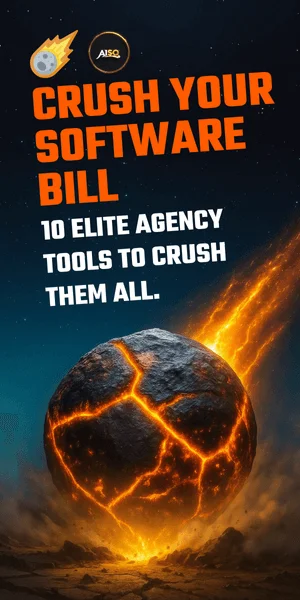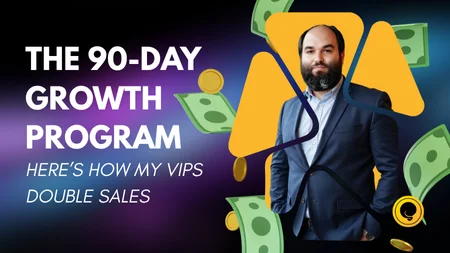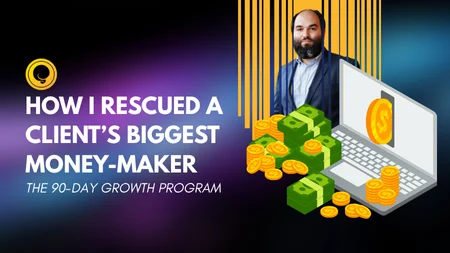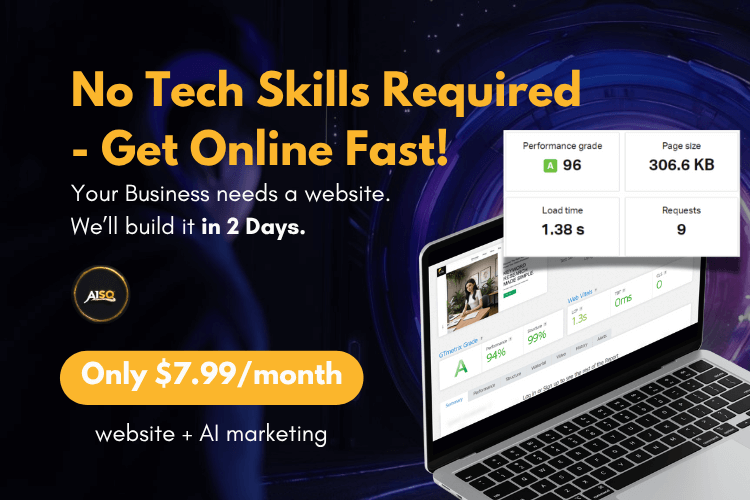“Why is my website not appearing in search results?”
“Why has my post not been ranked yet?”
“How long will it take to rank my site on the first page of Google?”
These are some of the common questions we received from Squirrly SEO users over the years – questions which made us realize that setting realistic SEO expectations needs to be the focus for the 1st Course included in the SEO PRO Learning Tournament.
Starting today, you’ll receive in-depth courses from us that will help you understand the key concepts of building a winning SEO strategy. At the end of each course, you’ll receive a badge so that you can track your progress.
So keep an eye on your inbox for the exclusive SEO wisdom brought to you by Squirrly. And make sure to collect all the Badges!

Today’s Course will tackle two main areas:
- Debunking common SEO expectations;
- The importance of having a long-term SEO strategy in place.
By the end of it, you’ll have a much clearer understanding of how SEO and Google work.
Common SEO Expectations Debunked
For the longest time, website owners have been spammed by emails in which they were promised first page rankings in weeks (even days) at unbelievable low costs.
Because of this outreach technique, a few things happened:
- SEOs were given a negative reputation in the industry, which means that legit SEO specialists had a much harder time landing new clients;
- Website owners demanded and expected faster and better results from their SEO team;
- People’s expectations when it comes to SEO took the wrong turn because blackhat SEO techniques made it possible to rank a site on the first page of Google quite easily – although this apparent success was short-lived.
As you were able to tell from the beginning of the post, there’s still a lot of confusion regarding how website owners can make their sites visible on Google.
Our purpose is to separate fact from fiction through this first Course and educate as many people as possible so that everyone can start their SEO journey with the proper mindset.
We chose the questions that kept repeating themselves over the years as our base for the topic of today’s course: setting realistic SEO expectations.
So fasten your seat belt. This Course is about to get real and bumpy.

1. “Why is my website not appearing in search results?”
This is one of those questions that we can only guess the answer to. When we’re confronted with it, there are so many possible scenarios going through our heads as to why a user’s site is not appearing in search results.
The only logical answer we can come up with is actually a series of questions that can help users figure out the issue themselves.
In these types of situations, there are a lot of aspects we don’t know in terms of what the person has been doing with their site, which means that it’s practically impossible to give a straight answer.
Here are the most common scenarios we will suggest:
- Google doesn’t know your site exists. When your site goes live, this doesn’t mean that Google is going to crawl it automatically – you need to let the search engine know that it can crawl your site.
- The site has not been indexed by Google just yet. It can take a week or more for the search engine to update its results, especially if the site is new.
- The site has not been optimized for search engines. Installing an SEO plugin doesn’t guarantee the fact that you will show up on Google – unless you optimize the content that’s on the site. Fact: the majority of people that had this issue didn’t even have the settings in Squirrly turned on, let alone optimized content on the site.
- The site is optimized for extremely competitive keywords, which will it make it almost impossible for the site to be found.
- The website has “no index” tags.
- The website has been penalized and removed from Google. Google may do this (permanently or temporarily) if the site is not meeting the quality guidelines.
The SEO expectation that leads to this type of question: installing an SEO plugin will fix a site’s visibility issues.
The reality: an SEO plugin won’t make a site visible in SERP until the root problem is fixed.
If you are currently dealing with this type of issue, here’s what you should do:
- Create a sitemap. Google crawls sitemaps to grab new content and display it in search engine results – that’s why you need to ensure your site has one. You can easily do this with Squirrly by activating the sitemap setting, in case you haven’t done this already.
- Submit your site to Google Search Console. You want Google to know about your site? Then do this as well. You can read our article on the topic for more details about submitting your site to Google.

2. “Why has my post not been ranked yet?”
As you already know, the Squirrly SEO live assistant helps you fully optimize any post type, whether it’s an article, a product page, or a landing page, for both humans and search engines.
So it almost makes sense for Squirrly users to ask us why their fully optimized post is not appearing in search results.
However, there is a but.
The main SEO expectation, in this case, is that people think SEO will help them rank for any keyword, even for general or popular terms, such as “online marketing”. General keywords have a high search volume, which makes them desirable to rank for.
The reality is that, if a site doesn’t already have authority in that particular industry, it will be impossible for them to rank for a highly competitive keyword.
The second expectation is the one where Google should simply display a page in search results after it has been optimized.
The reality is that Google has no reason for showing a page that people are not interested in seeing. Before doing this, the search engine needs to pick up signals that tell them internet users are actually visiting and reading the content that’s on that page.
A few weeks ago, when someone asked us this question, we did a couple of basic things:
- We looked at the number of social shares for the page that wasn’t ranking (by simply using a tool such as SharedCount);
- We looked at the authority of the user’s site (using Moz).
Our 2-minute research revealed the fact that the page which was not ranked yet had zero social shares and the site’s authority was extremely low (DA was 10).
So in this case, it makes sense to ask: why would Google want to rank a page that people don’t care about?
If Google would display results that are irrelevant to a certain query, then it will ruin the user experience and people will end up not using the platform anymore.
The bottom line is that Google will rank posts that provide value to its users, which is why it’s not enough to simply hit Publish and wait for your post to be ranked.
Neil Patel created a detailed blog post where he showed the exact steps you need to follow to promote an article after publishing it. Here’s the link to it.
On another note, if you updated a piece of content or you want Google to index a page faster, then read this post to find out how to do it.

3. “How long will it take to rank my site on the first page?”
Spoiler: nobody actually knows the answer.
This is probably the most common question people ask when it comes to SEO.
SEO is not a sprint, nor a one-time ride.
It’s a long-term process that you truly need to be engaged in to succeed and achieve the results you want, namely rank on the 1st page of Google.
Oftentimes, the reason why people have unrealistic expectations about SEO is that they don’t understand how SEO works or how Google decides to rank pages.
We’re here to provide you with a more comprehensive view of the topic.
Now, it’s nearly impossible to give a straightforward answer to the question above, and anyone who can promise you specific results by a certain date without looking at your site is most certainly making false promises.
The SEO expectation revolving this question is the fact that there’s a specific time frame in which any site can rank on the first page of Google.
The reality is that this is merely a myth.
I’m going to break down for you a few important factors that will determine whether or not you have a chance of ranking on the first page:
- Keyword competition. As I’ve already mentioned a little bit earlier, optimizing a page for a highly competitive keyword will not help you rank on the first page, no matter how much you optimize it.
- Keyword SEO search volume. Competition is not the only aspect to consider when choosing a keyword – the search volume is important as well. Why? Because it’s a waste of time to optimize for a term that nobody searches for.
- Meta description. By optimizing the meta description and title for your pages, you will not only avoid duplicate metas but this will also help you improve the click-through-rate. The more people click on your page, the higher the chances for your site to improve its position and rank on the first page.
- Content promotion. Social signals are a massive Google ranking factor so it’s essential to use social media platforms to get the word out about your new post.
- Quality backlinks. Nowadays, it’s all about having quality backlinks, and not plenty of sites with low authority linking back to you. The more quality sites link back to you, the more popular your site will become in the eyes of Google.
- Domain authority. Sites that have a high DA are more likely to be ranked by Google on the first pages because the search engine will already know that people love that site. When you’re just getting started, your DA will be quite low and you’ll need to attract a lot of signals that show Google you publish quality content that people love.
- Publishing frequency. A few years ago, you needed to blog several times per week to increase the visibility of your site in the eyes of Google. Nowadays, businesses don’t blog as often but it still remained an important online marketing activity. Why? Because Google is more likely to rank pages, not the homepage. Think about it – you don’t have that many words on your homepage, do you? This brings me to the next point.
- Content length. According to Neil Patel, “The average page that is listed on page one of Google has 1,890 words”, so bear this fact in mind next time you start writing a new blog post. Content length also helps with time on page. That’s because the more content you have, the more time people are going to spend on your site.

Having a Proper Strategy Can Help with Setting Realistic SEO Expectations
[bctt tweet=”A common misconception people have is that once they are #1 on Google, they no longer need #SEO. It’s like saying once you have lost the weight and you now reached your fitness goal, you no longer need to exercise and eat healthy.” username=”SquirrlyHQ”]
If you’re looking for a shortcut AND want to rank on the first page of Google in the long-term, then I need to break down something for you: you need to choose one OR the other.
It’s never going to be both.
Sure, there are hacks you can use to rank your site fast on the first page in case you have a good DA. But if you’re lacking a proper strategy, then you won’t appear on the first page for more than a few days.
So then, you have to ask yourself if it’s really worth it.
The key to scaling your business and appearing on the first page of search results consistently is implementing a solid strategy year after year.
A common misconception people have is that once they are #1 on Google, they no longer need SEO.
It’s like saying once you have lost the weight and you now reached your fitness goal, you no longer need to exercise and eat healthy.
Wrong!
Once you reach the top places in Google, you need to shift your strategy and think about what you need to do to stay there.
What I’m trying to say is that if you approach SEO as a long-term battle, then your mind will be in the right place.
A lot of online marketing influencers agree that having a strategy is key to sustainable SEO, including Neil Patel. In this video, he talks about how the biggest mistake he made doing SEO that cost him money was the fact that he was short-sighted.
So lacking a long-term vision for your site can hurt you and your wallet.
We can’t tell you how long it’s going to take for you to rank at the top but we can tell you how to get there: by thinking about the user.
Google will always place at the top the search results that are relevant to the user. Once you understand this, you will become invincible.
[bctt tweet=”Lacking a long-term SEO vision for your site can hurt you and your wallet. ” username=”SquirrlyHQ”]

Your Goals for This Course (and Your 1st Badge)
Now that this course has come to an end, it’s time to wrap up everything by giving you three small tasks to implement so that you fully earn your Badge:
- Write down your main SEO expectations;
- Set 3 realistic objectives when it comes to SEO for your site;
- Identity 3 important pages on your site that you want to start working on.

That’s it for today. Talk to you in a few days!

















